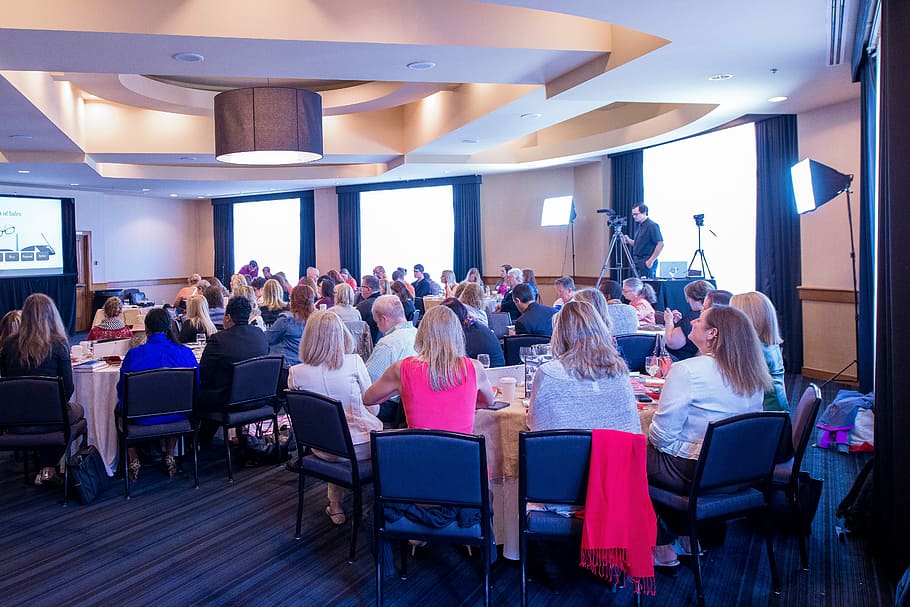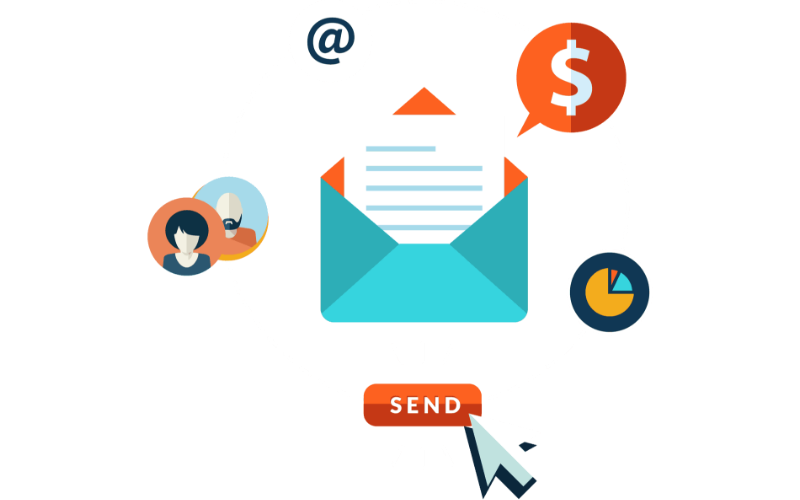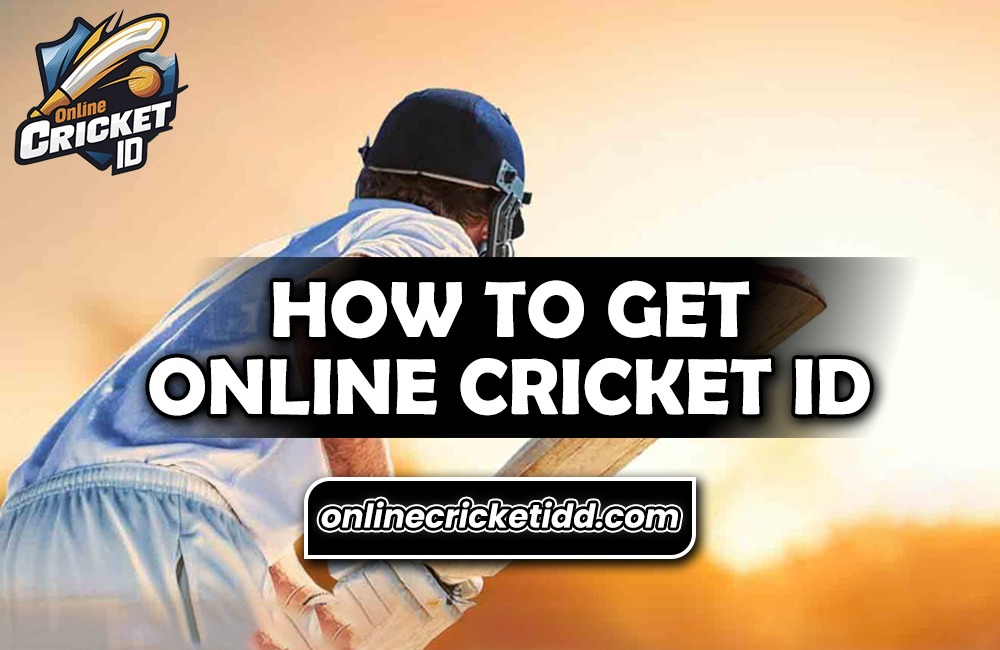8 B2B Event Marketing Ideas to Boost Your Event’s Success

Marketing B2B events requires a tailored approach to reach and engage the right audience. These events are often aimed at specific industries, business professionals, or decision-makers, and the marketing strategies you use must align with their needs. Whether you’re organizing a trade show, conference, or corporate event, effective b2b event marketing can drive attendance and create meaningful connections. In this blog, we’ll explore eight practical and actionable B2B event marketing ideas that will help you get the word out and ensure your event’s success.
1. Create Targeted Content for Your Audience
Content marketing is one of the most effective ways to promote B2B events. By creating content that speaks directly to the needs and interests of your target audience, you can capture their attention and encourage them to register for your event.
Here’s how to leverage content for B2B event marketing:
- Develop Blog Posts: Write articles that provide value to your target audience. This could include industry trends, business insights, or topics related to your event’s theme. You can also write event-specific blog posts that highlight key sessions, speakers, or networking opportunities.
- Create Videos: Video content can be incredibly engaging. Produce short videos that introduce your event, showcase past highlights, or feature speaker interviews. Share these videos across your website, social media, and email campaigns.
- Produce Whitepapers or Case Studies: For a B2B audience, providing data-driven insights can be very persuasive. Develop whitepapers, case studies, or reports that tie into your event’s focus, and offer them as downloadable content on your event’s website.
- Promote with Infographics: Visual content, like infographics, can help you convey information quickly and effectively. Use infographics to summarize event highlights, provide statistics, or outline key topics that will be covered.
By creating content that is relevant and valuable, you’ll be able to attract the attention of your target audience and build anticipation for your event.
2. Use LinkedIn for Event Promotion
LinkedIn is one of the most powerful platforms for promoting B2B events. As the leading professional networking site, LinkedIn offers a variety of tools and features that can help you connect with your target audience, share event updates, and drive registrations.
Here’s how to make the most of LinkedIn:
- Create an Event Page: Use LinkedIn’s event feature to create a dedicated page for your event. This page allows you to share details, post updates, and invite connections to attend. Encourage your team members, partners, and sponsors to share the event within their networks as well.
- Share Regular Updates: Keep your LinkedIn followers engaged by posting regular updates about your event. This could include speaker announcements, agenda highlights, or registration deadlines. Use engaging visuals and video content to capture attention.
- Leverage LinkedIn Ads: LinkedIn Ads allow you to target specific industries, job titles, or companies, making it an ideal platform for promoting B2B events. Run ads that direct users to your event’s landing page, and use lead-generation forms to capture attendee information.
- Engage in LinkedIn Groups: Join LinkedIn groups related to your industry or the focus of your event. Share event updates and engage with members by starting conversations around relevant topics. This can help you establish your event as a must-attend within specific professional circles.
By leveraging LinkedIn’s professional network, you can promote your B2B event to the right audience and build meaningful connections that will lead to increased attendance.
3. Collaborate with Industry Partners and Sponsors
Partnering with other businesses, sponsors, or industry associations can greatly enhance your B2B event marketing efforts. These partnerships allow you to reach a wider audience, access new marketing channels, and add credibility to your event.
Here’s how to collaborate effectively:
- Co-Branded Marketing Campaigns: Work with your sponsors or partners to create co-branded marketing materials, such as email campaigns, social media posts, or website banners. By sharing these materials across both of your networks, you can expand your reach and attract more attendees.
- Offer Sponsor-Led Webinars or Pre-Event Sessions: Engage your sponsors by offering them opportunities to lead webinars, Q&A sessions, or panel discussions leading up to the event. These sessions can serve as valuable promotional content while giving your sponsors more visibility.
- Leverage Partner Networks: Ask your partners and sponsors to promote the event to their customer base, email subscribers, or social media followers. Provide them with shareable content, such as email templates or social media graphics, to make it easy for them to spread the word.
- Highlight Sponsors in Promotional Materials: Showcase your sponsors in your marketing materials, such as emails, event websites, and social media posts. This not only adds credibility to your event but also provides additional value to your sponsors.
By partnering with industry leaders and sponsors, you’ll benefit from their established reputation and network, which can help attract more attendees and boost your event’s visibility.
4. Host Pre-Event Webinars or Workshops
Hosting a pre-event webinar or workshop is a great way to engage potential attendees and give them a taste of what to expect at your event. Webinars can help you build excitement, share valuable insights, and convert leads into registrants.
Here’s how to host a successful pre-event webinar:
- Choose a Relevant Topic: Select a topic that aligns with your event’s theme and addresses a common pain point or challenge within your target audience. This will attract attendees who are interested in the subject matter and more likely to register for the main event.
- Invite Event Speakers: Feature some of your event speakers or industry experts as guests on the webinar. This allows potential attendees to get a preview of the quality of content and thought leadership they can expect at the event.
- Promote the Webinar to Generate Leads: Use your pre-event webinar as a lead generation tool. Promote the webinar through email, social media, and LinkedIn ads, and require attendees to register. You can then follow up with webinar participants to encourage them to attend the main event.
- Offer Exclusive Event Discounts: Incentivize webinar attendees by offering them exclusive discounts or early access to tickets for the event. This can drive immediate registrations and increase conversions.
Pre-event webinars are a great way to provide value to your audience and create a sense of urgency for registering for your main event.
5. Offer Early Bird Discounts and Incentives
Encouraging early registrations is crucial for B2B events, as it allows you to gauge interest and secure attendees in advance. Offering early bird discounts and incentives is an effective way to motivate potential attendees to commit early.
Here’s how to structure your early bird promotions:
- Offer a Tiered Pricing System: Create different pricing tiers based on registration dates. For example, offer the lowest rate for early bird registrants, followed by regular pricing, and finally, last-minute pricing. This creates urgency and encourages attendees to register sooner rather than later.
- Bundle with Additional Perks: Offer additional perks for early registrants, such as access to exclusive sessions, VIP networking events, or one-on-one meetings with speakers. These added incentives can make early bird registration even more appealing.
- Highlight Limited Availability: Emphasize the limited availability of early bird tickets to create a sense of scarcity. Use countdowns, banners, or social media posts to remind potential attendees that the clock is ticking.
- Run Flash Sales: In addition to early bird pricing, consider running short-term flash sales. These limited-time offers can generate excitement and prompt attendees to take action.
Early bird incentives not only boost early registrations but also help you plan better by giving you a clearer idea of how many attendees to expect.
6. Engage Your Audience Through Email Marketing
Email marketing remains one of the most effective channels for promoting B2B events. By sending targeted emails to your database, you can share event details, provide updates, and nurture leads into registrations.
Here’s how to maximize your email marketing efforts:
- Segment Your Email List: Divide your email list into segments based on factors such as industry, job role, or past attendance. This allows you to send personalized messages that resonate with each group.
- Create a Drip Campaign: Set up a series of automated emails that build anticipation for your event. Start with an announcement email, followed by reminders, speaker introductions, and deadline prompts. Drip campaigns keep your event top-of-mind and encourage ongoing engagement.
- Include Strong CTAs: Every email should include a clear and compelling call-to-action (CTA) that directs recipients to register, learn more, or secure their spot. Make the CTA prominent and ensure it leads to a simple registration process.
- Offer Exclusive Content: Send exclusive content to your email subscribers, such as interviews with speakers, sneak peeks of sessions, or downloadable resources. Providing valuable content increases engagement and reinforces the benefits of attending your event.
By consistently communicating with your audience through email marketing, you’ll be able to nurture leads, provide updates, and encourage registrations.
7. Leverage Social Media for Engagement
Social media is an essential tool for promoting B2B events. While platforms like LinkedIn are particularly useful for B2B audiences, other channels such as Twitter, Facebook, and Instagram can also be valuable for generating buzz and driving registrations.
Here’s how to use social media effectively for event marketing:
- Create an Event Hashtag: Develop a unique event hashtag and use it consistently across all social media posts. Encourage attendees, sponsors, and speakers to use the hashtag when sharing event-related content. This helps build a sense of community and makes it easier to track social media activity.
- Share Behind-the-Scenes Content: Give your audience a glimpse behind the scenes by sharing photos, videos, or stories about the event planning process. This could include sneak peeks of the venue, interviews with speakers, or insights from your team.
- Host Social Media Contests: Run social media contests to boost engagement and drive registrations. For example, you could offer free tickets or VIP passes to attendees who share your event posts, tag friends, or use your event hashtag.
- Utilize Paid Social Media Advertising: Social media platforms offer advanced targeting options for paid ads. Use paid social media campaigns to promote your event to specific audiences based on industry, job title, or interests. Make sure to include compelling visuals and CTAs in your ads.
Social media allows you to engage with your audience in real-time, build excitement, and expand the reach of your event promotion efforts.
8. Encourage Word-of-Mouth Marketing
Word-of-mouth marketing can be one of the most powerful forms of promotion for B2B events. Encouraging your attendees, sponsors, speakers, and partners to spread the word can significantly increase your event’s visibility.
Here’s how to foster word-of-mouth marketing:
- Create Shareable Content: Develop content that attendees will want to share with their networks. This could include speaker announcements, infographics, or videos. Make it easy for your audience to share by including social media buttons and pre-written posts or emails.
- Offer Referral Programs: Implement a referral program where attendees can earn rewards for referring others to your event. This could include discounted tickets, exclusive access to certain sessions, or VIP perks.
- Leverage Attendee Testimonials: Use testimonials from past attendees to build credibility and trust. Share these testimonials on your website, in emails, and on social media. Positive reviews and experiences from previous attendees can encourage others to register.
- Encourage Speaker and Sponsor Promotion: Ask your event speakers and sponsors to promote the event within their networks. Provide them with marketing materials and social media content to make it easy for them to share.
By tapping into the power of word-of-mouth marketing, you can generate organic buzz and attract more attendees to your event.
Conclusion
By applying these eight B2B event marketing ideas, you’ll be able to create a comprehensive and effective marketing strategy that drives attendance and engagement. Focus on creating targeted content, leveraging professional networks like LinkedIn, and fostering partnerships to ensure your event reaches the right audience and achieves success.










